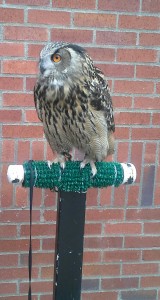New writers often talk about their work in terms of how their work “flows.” But what does this really mean? And if the work doesn’t flow, how do you fix it?
Writing Tip for Today: What are some possible fixes for prose that doesn’t flow?
Rhythm
When I think of flow in writing, I think of the rhythm of the sentences and paragraphs. Good writing resembles a choreographed dance–hours of practice (read: revision) are necessary in order to produce a smooth performance. When you write a story, you also want your sentences and paragraphs to rise and fall in a pleasing and logical way. Imagine how unpleasing it might be to read a story in which all the sentences were about the same length. By varying the length, vocabulary and emphasis, you help build tension for your story as a whole. I like to read my drafts aloud, listening for the rhythm and comparing it to the action of the scene. A “sequel” or bridge scene might be slower–longer sentences, more Romance-language and multi-syllabic words. In contrast, a high-action scene might have shorter sentences (even some fragments), more Teutonic-root words and fewer syllables for the word choices. Your story will benefit from these tools and should improve flow.
Weaving
Another way to improve the way a story flows is by learning to weave narrative description with the action/dialog of the scene. If you “chunk” long passages of description or exposition before readers get a scene, they’re likely to forget most of the description you so painstakingly wrote. For instance, if you open a scene with a description of the setting that includes lists of items, long explanations or even the weather, by the time the action begins readers will not care about those lists and probably won’t remember most of it. Instead, try to put the setting into the action. EX: BEFORE: The pavilion glittered with decorations. Tables were laden with photos of bride and groom in childhood, candles, tiny tea lights, bouquets of lilies, carnations, roses, baby’s breath and delicate ferns. The forecast was for a torrential downpour and by the looks of the sullen gray clouds, the wedding party was liable to get soaked. The distant mountains sat hunched and brooding over the valley below. Dry arroyos could quickly become raging rivers, just as in ancient times.
AFTER: Jane eyed the sullen gray sky. She didn’t doubt the forecast for a downpour, but hope the photos strewn around weren’t ruined. She rearranged a bouquet of lilies gracing the reception tables. “I hope the wedding party doesn’t mind getting wet.”
Decluttering
Finally, story flow can be improved by decluttering your sentences the way you would organize the linen closet. Take a look at every modifier (adverb or adjective) and pay extra attention to places where there are multiple modifiers for a word. First, see if you can find a more specific precise word to replace a common or general noun with modifier(s). (EX: walk quickly might be replaced as trotted). Next, see if you can omit some modifiers entirely–especially if you have a tendency toward double adjectives (She was a trim, tanned girl). Too many double modifiers can give prose a sing-song quality that can take away from your work’s flow. Instead, try to be specific as often as you can and only use multiple modifiers sparingly.






Linda, I love how you compare writing to dancing. I had two left feet when it came to writing. I am taking lessons and learning how to do si do and promenade my words around the paper. My trick, when I get tired or trip, I leave the dance floor for a while. When I return, I see with fresh eyes. I can remove the words that tripped me up and replace them with words that flow…like a beautiful Waltz.
Cheryl,
What a cool way to describe the frustration we all feel at times. Just remember, in writing you get many chances to mess up. Don’t be afraid to step on some toes as you learn!
Keep Writing,
Linda
Hee Hee Stepping on toes is what I do best! I have had mine stepped on too.
Cheryl,
Had my toes stepped on — it’s just a perfect metaphor for receiving a harsh or hurtful critique!
Keep Writing,
Linda
Thanks, Linda. I’ll highlight this on the Christian Poets & Writers blog – http://www.christianpoetsandwriters.com.
To check the flow when I’m writing in any genre, I read my work aloud — not just my poems, but even novels and encyclopedias. 🙂
Mary,
Thanks as always. Reading aloud is in my opinion, the best way to find errors typos and places which do not flow.
Keep Writing,
Linda
Fabulous tips, Linda! I love sentence rhythm; it’s my latest literary addiction. 🙂 I’ve never heard of watching your double modifiers. Makes perfect sense. Thank you!
Sue,
I’ve had some students who unwittingly used double modifiers for nearly everything, thinking they were more descriptive. Sometimes, though, less is more!
Thank YOU for visiting my blog,
Linda
brief and punchy.